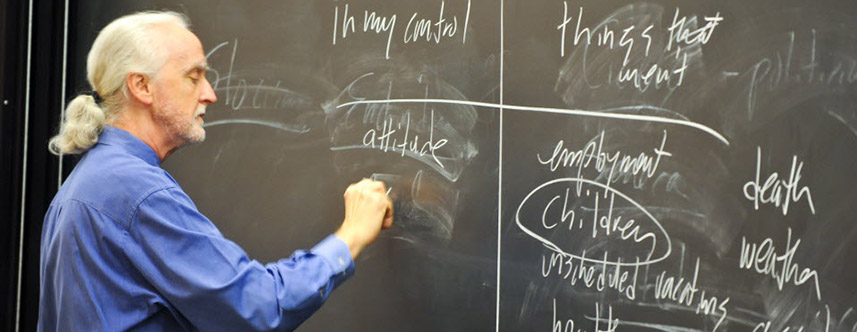What Can You Do With A Liberal Arts Education?
You are asking the wrong question.
In a world focused on the bottom line, a world in which we demand tangible and verifiable returns on our investments, wondering about what the real-world return will be on an investment involving the commitment of many thousands of dollars and hours makes sense.
But in the world of education, particularly a liberal arts education, something of far greater importance and magnitude than the bottom line is at stake. Almost 2,500 years ago, Aristotle provided the framework for the shift in focus I have in mind. In his moral philosophy, Aristotle argues that all persons ultimately want the same thing — to live a life of human flourishing, a life in which one’s best human potentials are actualized. The question is, what is the best way to think about living such a life? The best question to ask, Aristotle suggests, is not “What do I need to do?” if I want to live such a life. rather, the correct question to ask is: “What sort of person should I be?”
The life of human flourishing depends far more on the sort of person one is than on what one is doing and is more a matter of continual character development than of supply and demand. Bringing Aristotle’s insight to the issue of liberal arts education, the best question to ask is not “What can I do with a liberal arts education?” but rather, “What sort of person will a liberal arts education help me become?”
The desire to learn, to pursue the truth at all costs, cannot be taught. It can only be awakened by example, shown as a living reality. The greatest task of a teacher is to demonstrate, by her or his own example, the desirability and attraction, the unparalleled invigoration and joy, of being a lifetime learner and pursuer of truth. Our greatest desire is that it be a dynamic laboratory for the cultivation of learning, the nurturing of growth, and the shaping of character in those students we are privileged to welcome for a short time, then send into the world as ambassadors of human flourishing.
— Dr. Vance G. Morgan, professor of philosophy, former director of the Development of Western Civilization Program






